Sea lion tries to take an oceanside nap in the sunshine
Galapagos Islands are home to some of the most unique and diverse animal life on the planet. Among these animals, sea lions are thought to be the most endearing and entertaining. They occupy almost every beach and rocky shore, spending their days swimming in the ocean and lazing in the sun. They hunt for food in the water, preferring octopus, eels, and fish, and then they snooze wherever they can find a spot to stretch out.
This large male had flopped on his back in the warm sun, but the flies seemed to be tickling his face too much for him to drift off. He makes some effort to shoo them with his flippers. He wrinkles his nose and snorts. He even twitches and rolls around, but the flies are persistent, and they keep him awake until he gives up and moves off to find another spot. Often, a sea lion will find a crevice or gap in the rocks to wedge their head so the flies cannot bother them. They like to leave their bodies in the sun to soak up the rays in order to dry off and get warm.
Sea lions are very social, with a colony that usually consists of one dominant male and as many as 25 to 30 females. The females will often have a pup as well. Other males will be chased away by the dominant male when they reach maturity. Those males will try to establish their own colony.
Sea lions are like large dogs, and the yound are very curious and playful. Especially in the water, people often find themselves surrounded by several adolescent sea lions that will dive and spin and invite the clumsy humans to join them in their games. But people are well advised to stay at least six feet away from seal lions on land. This is required by law, and it is also for the benefit of the animals. Although they look friendly and cuddly, the larger sea lions are not likely to permit human interaction and they will become defensive, if not respected.
One of the most important reasons to avoid physical contact is that the mothers will usually abandon their young if they are touched by humans.
-
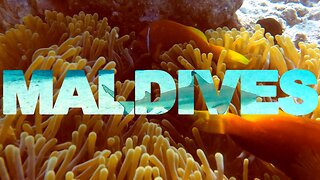 2:02
2:02
WildCreatures
19 days ago $1.03 earnedWitness the mystical underwater world in the Maldives
4K5 -
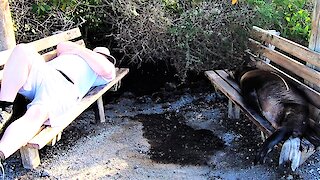 0:38
0:38
WildCreatures
4 years ago $7.99 earnedTourist And Sea Lion Share A Shady Spot For A Nap In The Galapagos
9.57K5 -
 1:24
1:24
Benji
4 years ago $22.35 earnedBaby adorably tries to eat the sunshine
19.8K6 -
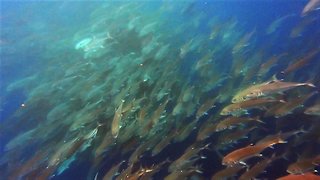 1:19
1:19
WildCreatures
5 years ago $1.27 earnedHuge fish bait ball tries to use surfacing scuba divers as protection
1.9K -
 1:33
1:33
ViralHog
4 years ago $0.01 earnedRandom Dog Tries to Take Chair
341 -
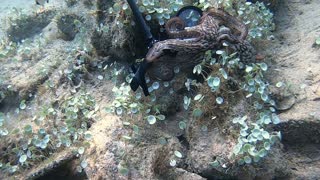 2:13
2:13
ViralHog
4 years ago $0.01 earnedOctopus Tries to Take Camera
2.95K -
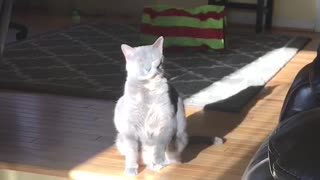 0:22
0:22
JamesCowemoji
5 years ago $39.13 earnedFunny Cat Literally Tries To Catch The Sunshine
2.36K1 -
 1:51
1:51
WTMJMilwaukee
4 years agoMilwaukeeans take break from homes to enjoy spring sunshine
6 -
 0:21
0:21
KJRH
4 years agoSunshine Friday
8 -
 0:40
0:40
WPTV
4 years agoSunshine Baby 4/5/20
26